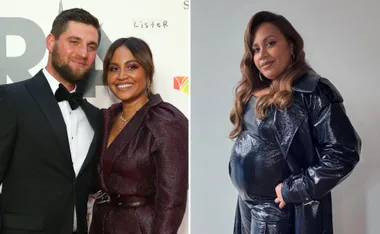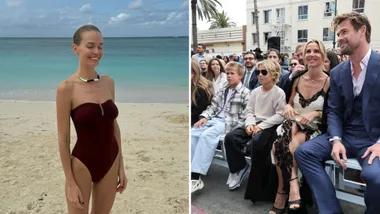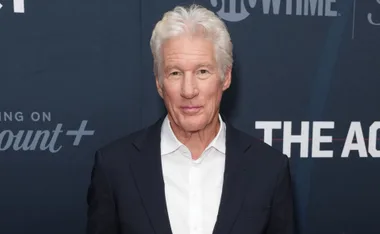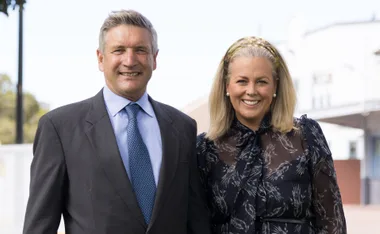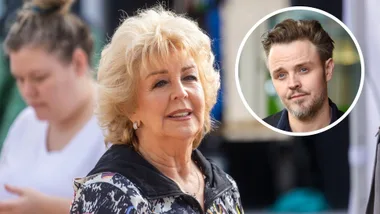Kit Denton was a wonderful man; a writer, father, husband and the centre of his family’s world. For Andrew Denton, his dad represented humour, integrity and courage.
He was also affectionately named “Old Bastard Face” by his wife, Andrew’s mum Le, for Kit’s at times argumentative and pedantic nature.
Kit was a man who lived for words and The Goon Show comedy, both passed on lovingly to his son. He was unwell for many years of his later life and had been in pain for a long time, which he bore with dignity.
“Dad had a heart attack in his 50s, he had spinal problems from a parachuting accident when he was in the Army and he had a thing called polyarthritis which meant arthritis of everywhere,” recalls Andrew.
Yet it was in the final months and weeks of his life that Kit really started to suffer in an unbearable way.
“My father was rushed to hospital,” Andrew explains. “In those last three days, once he’d slipped into a coma, it was clear that the pain relief they gave him wasn’t enough and my sisters, mother and I were on constant watch with him.
“Throughout that time, my abiding memory is of these spasms and waves of pain going through his body. He was flinching and he was buckling … Then, at the end, it was a violent series of spasms. It was as if something had crawled inside him and was tearing him apart from the inside.
“It was horrible to watch and it was horrible to hear. Watching my father die really shocked me – to see the brutality of it. I never understood to whose benefit he was kept alive for those extra three days, but it sure as hell wasn’t his.
“Afterwards, I remember talking to my family GP about the question of euthanasia. I was really struck by the fact he said, ‘Look, it’s best that there’s not a law – it’s best it just stays as a grey area.’ I couldn’t understand that.”
Kit was just 67 when he died of heart failure in 1997 and in many ways, he was too young to die. Yet Andrew is certain that if he’d been able to end his life to escape that excruciating degree of pain at the end, Kit would have.
“I’m sure,” says Andrew. “I don’t ever recall us talking about this in depth, but I know we’d talked about it and certainly, philosophically, it was something he agreed with.
“He was a compassionate man, a humane man and if there had been the kind of choice I’m proposing, which is a medication you could drink, that had been legally available, I suspect he would have chosen to take it – or not. But had he chosen to take it, I know as a family we would have totally supported that choice.”
Fuelled by this traumatic memory and by an article he came across a couple of years ago by Tasmanian Margaretta Pos describing the final days of her father, Hugo, who lived and died in the Netherlands, Andrew has become a passionate advocate for introducing assisted dying legislation in Australia.
Under Netherlands law, Hugo, who had terminal cancer, spent the last night of his life with his family listening to Mozart, following a week of joyous goodbyes.
Then, with medication which he chose to take and legally was able to take, he slipped peacefully away on his own terms. This, says Andrew, was something he wishes his father could have had.
For the past eight months, Andrew has spent hundreds of hours talking with nurses, doctors, politicians, lawyers, priests and surgeons here and around the world, trying to work out how assisted dying laws work and if they could bring relief to Australian families.
The answer was an unequivocal yes. His interviews make up a 17-part podcast called Better Off Dead, which is both affecting and compelling.
There are two legal models currently in play – one in Oregon where the law is limited to those with a terminal illness and a prognosis, as determined by two independent doctors, that they have six months or less to live with no treatment available. In these circumstances, patients can ask for a fatal medication, which only they can administer when they are ready.
Ultimately, Andrew discovered many choose not to take the medication, but the very fact they have it brings a sense of comfort to them and their families.
“People only choose to take it when they really have nothing else, when there is no option,” says Andrew. “I think it’s one of the great fallacies put forward – the suggestion that people die easily, or that it’s a coward’s way out, or that they don’t value their lives. People deeply value their lives. People so much want to be alive.”
The other law, adopted in Belgium and the Netherlands, concerns a wider audience, those suffering from “unbearable and untreatable suffering”, which can cover such things as Multiple Sclerosis, motor neurone disease and irreversible disorders.
In these circumstances, a life-ending injection is administered upon request. Andrew would like to see a combination of the two options here in Australia.
“I really think the appropriate way to do this is what’s called ‘voluntary assisted dying’, whereby it’s not somebody giving you an injection, unless you are physically incapable, but you are given a medication that you and only you can drink. It is the ultimate act of volunteering. And, as I said, almost 40 per cent of people who get this medication choose not to take it.
“One of the loudest drumbeats of fear, which has been banged in this country over the last 20 years, is ‘people are going to be forced into this. Granny is going to be coerced. The disabled are going to be coerced’. But it’s voluntary, it’s you, it’s your decision – it’s only you that can do this. I think that’s absolutely crucial.”
I ask Andrew if he would opt for assisted dying himself. “If I was in that extreme position, it is something I would like to have the option of doing for myself,” he says.
“I can’t say whether I’d do it. One of the things I’ve realised is that people cling to life well beyond what you would, from the outside, think anybody could do. It’s such a personal thing and until you’re there you don’t know what’s going to happen.”
Many of the stories Andrew has heard have touched him to the core and all but broken his heart, but he says he hasn’t become depressed by the project.
“The incredible resilience of the human spirit that I have seen is actually very inspiring. And you know what lies at the core of this? Even I would say for the opponents – it’s love. There is a great desire to treat those we love with love and this is at the heart of assisted dying. Assisted dying is the ultimate act of medical compassion towards those most in need of it.”
For Andrew’s father, the end was very different, but he does have fond memories of the week before Kit went into a coma, when the family collected for a farewell toast.
“We drank Champagne to him and wished him the old Jewish toast, l’chayim – to life. So we got that and many families don’t get that.”
For Andrew Denton’s podcast, visit wheelercentre.com/betteroffdead.
This story originally appeared in the April issue of The Australian Women’s Weekly.




